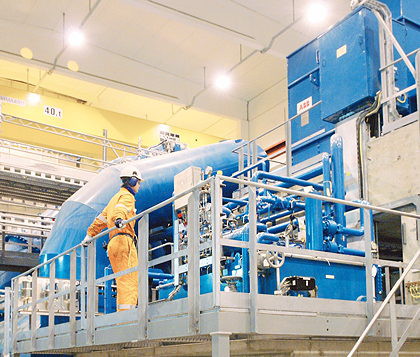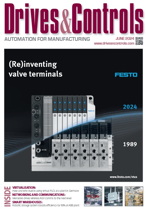- Home » News » World News
ABB offers refunds if large motors don’t hit efficiency targets

ABB has launched an initiative to encourage the specification of higher-efficiency large motors by guaranteeing to refund operating costs if the machines do not meet promised efficiency criteria. The Top Industrial Efficiency (Tie) scheme is an attempt by the motor-maker to overcome the tendency to specify the lowest-cost machine that meets an application’s specifications. This is a particular problem with motors that are specified by OEMs (original equipment manufacturers) who will not have to pay the motor’s running costs and therefore specify the lowest-cost option rather than the most efficient.
ABB wants OEMs to offer their customers a choice between the highest-efficiency options and the lowest-cost motors that will meet their specifications. It says that the Tie option will offer the same performance, ease of use and reliability as the lower-cost alternatives.
Inevitably, motors that meet the Tie criteria will be more expensive because they need more copper, use higher quality electrical steels, and require new tools to produce optimised stator geometries.
One problem in promoting high-efficiency large motors is that the mandatory MEPS (minimum efficiency performance standards) schemes for smaller motors do not applyto large multi-megawatt machines. ABB reckons that if the IE energy efficiency rating scheme was applied to its large machines, it could achieve the equivalent of IE7 (even though this level of efficiency is not yet defined for machines of any size, with IE4 being the highest agreed specification for smaller motors).
David Bjerhag, global manager of ABB’s large motors and generators business, cites the example of a 20MW motor which, based on a 0.2% improvement in efficiency, could save $800,000 in energy costs and 3,000 tones of CO2 emissions over the course of a 20-year operating lifetime. Such a machine would achieve an average payback time of just 0.5-3 years, he says.
At its Large Motors and Generators factory in Sweden, ABB has built a motor with an efficiency of 99.05% (equivalent to IE7) – compared to a typical value of 98.3% for large motors. Bjerhag says that if ABB’s existing customers opted for motors of this efficiency, they would save 1.6TWh of electricity over the motors’ operating lives, and cut CO2 emissions by 827,000 tonnes every year. This is equivalent to 6% of Sweden’s total annual CO2 emissions from electricity generation.
ABB says that its aim with the Tie option is to offer users a cost-effective option with significant energy and economic savings, helping to incentivise the transition to more sustainable use of energy. It expects that legislation will eventually follow, mandating higher levels of efficiency for large motors, as well as smaller machines. ABB hopes that the new option will raise awareness and fast-track the introduction of these official standards.

The Tie option is currently available for four- and six-pole synchronous motors and generators. ABB is hoping that the option will help to raise the efficiencies not just of motors, but also of generators and other equipment such as transformers, compressors, pumps and drive systems.
ABB’s commitment under the Tie scheme is to guarantee the supply of “the most efficient product/system that we currently can offer without affecting the reliability, or increasing the complexity” of the system. Should it fail to substantiate compliance with the Tie option, it says it will repay the user’s energy and CO2 costs during the first 100,000 hours of operation, “in no case exceeding the additional price paid for the purchaser for the Tie option”.
“Once you have the option, I’m certain people will choose it,” says Bjerhag.
ABB is hoping to persuade other suppliers of large machines to offer similar schemes. It points out that large motors are responsible for 10.4% of global electricity consumption.
ABB: Twitter LinkedIn Facebook





